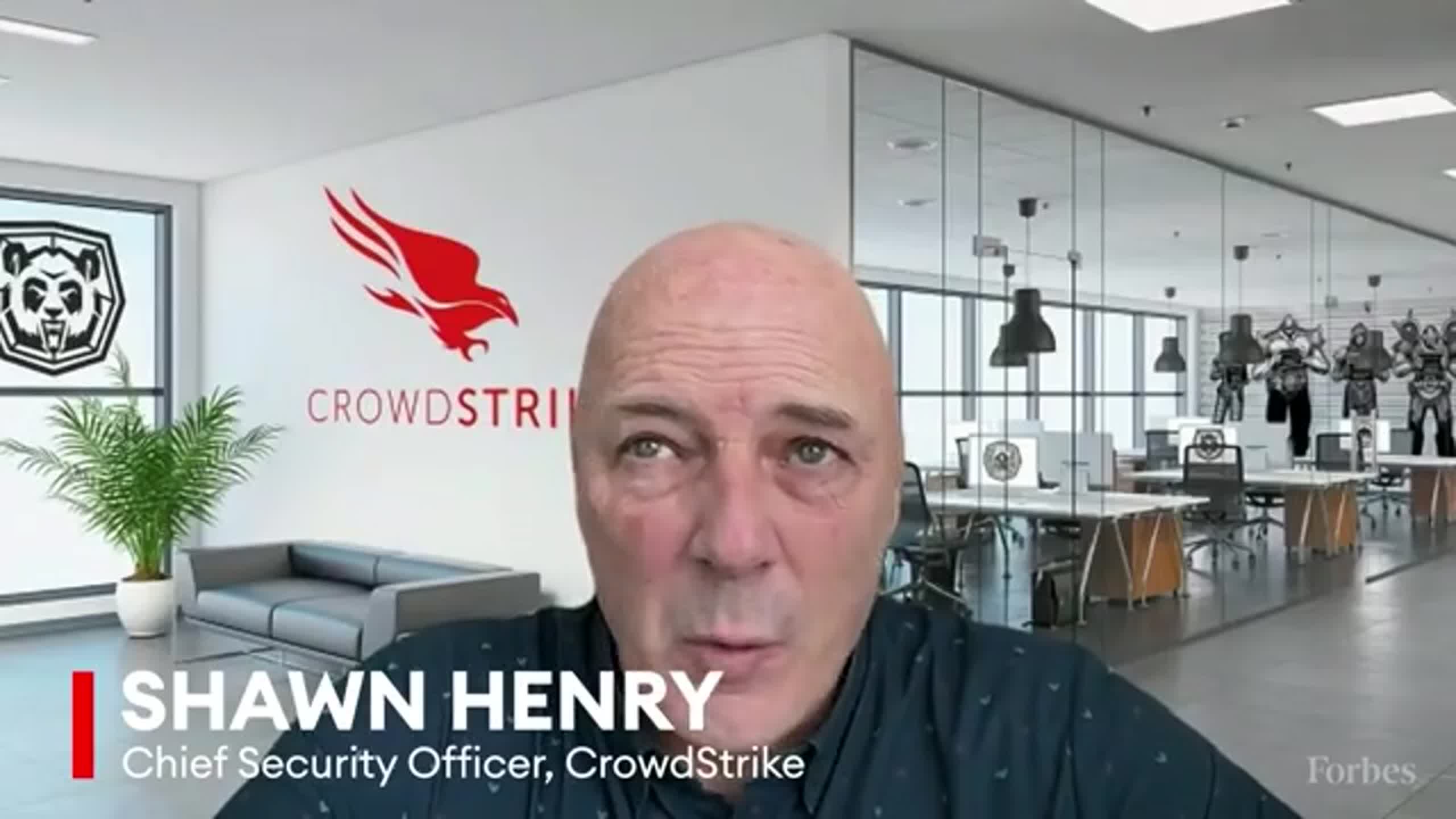What This Cybersecurity Veteran Thinks About The Future Of Cybercrime
As a renowned cybersecurity expert with an impressive track record of leadership in the field, Shawn Henry is uniquely positioned to offer insight into the ever-evolving landscape of cybercrime. Prior to joining CrowdStrike, Shawn held the esteemed position of Executive Assistant Director at the Federal Bureau of Investigation (FBI), overseeing half of the agency's investigative operations worldwide.
Under Shawn's leadership, he oversaw all FBI criminal and cyber investigations globally, including international operations and critical incident response to major investigations and disasters. He also successfully managed computer crime investigations spanning the globe, established the National Cyber Investigative Joint Task Force, and received the Presidential Rank Award for Meritorious Executive for his exceptional leadership in enhancing the FBI's cyber capabilities.
Now as the Chief Security Officer of CrowdStrike, Shawn brings his extensive expertise to the forefront, sharing his thoughts on the latest tools and risks emerging from AI, hacking, and legacy tech. With his wealth of experience at the helm of one of the world's most respected cybersecurity organizations, we sat down with Shawn to discuss the future of cybercrime and what he believes lies ahead.
Joining us for 'Forbes Talks' was a rare opportunity to tap into Shawn's vast knowledge and insights on the rapidly shifting cybersecurity landscape. As we delved into his thoughts on the latest threats and emerging technologies, one thing became clear: Shawn is at the forefront of a new era in cybercrime, and his expertise will be crucial in helping us navigate its complexities.
What are your thoughts on AI-powered attacks? How do you believe legacy tech continues to pose risks, and what role do you see CrowdStrike playing in addressing these concerns?
A Conversation with Shawn Henry
Shawn Henry: As we look ahead, it's clear that AI-powered attacks will only continue to evolve. The threat of autonomous systems poses a significant challenge, and it's essential that we stay ahead of the curve in terms of intelligence gathering and threat response.
Forbes: That's a compelling point. What steps do you think organizations can take to mitigate the risks associated with legacy tech?
Shawn Henry: Legacy systems continue to pose significant security risks due to their outdated architecture, often built without modern security protocols in mind. The key is to develop and implement robust vulnerability assessment programs that identify and address these vulnerabilities before they can be exploited by attackers.
Forbes: CrowdStrike has made a name for itself as a leader in cybersecurity solutions. What sets your organization apart, and how do you think you're contributing to the fight against cybercrime?
Shawn Henry: At CrowdStrike, we've built our platform around real-time threat detection and automated incident response capabilities. By leveraging machine learning algorithms to identify patterns in malicious behavior, we enable organizations to respond more swiftly and effectively to emerging threats.
A Vision for the Future of Cybercrime
As Shawn's thoughts on AI-powered attacks, legacy tech, and CrowdStrike shed light on the ever-evolving landscape of cybercrime, one thing becomes clear: the battle against these threats is far from over. With Shawn at the helm, we can expect to see innovative solutions emerge that will help organizations stay ahead of the curve in terms of cybersecurity.
As a respected voice in the field of cybersecurity, Shawn Henry's expertise will undoubtedly shape the future of cybercrime and inform strategies for prevention and mitigation. One thing is certain: with his insights and guidance, we can expect to see a more secure digital landscape emerge in the years to come.
